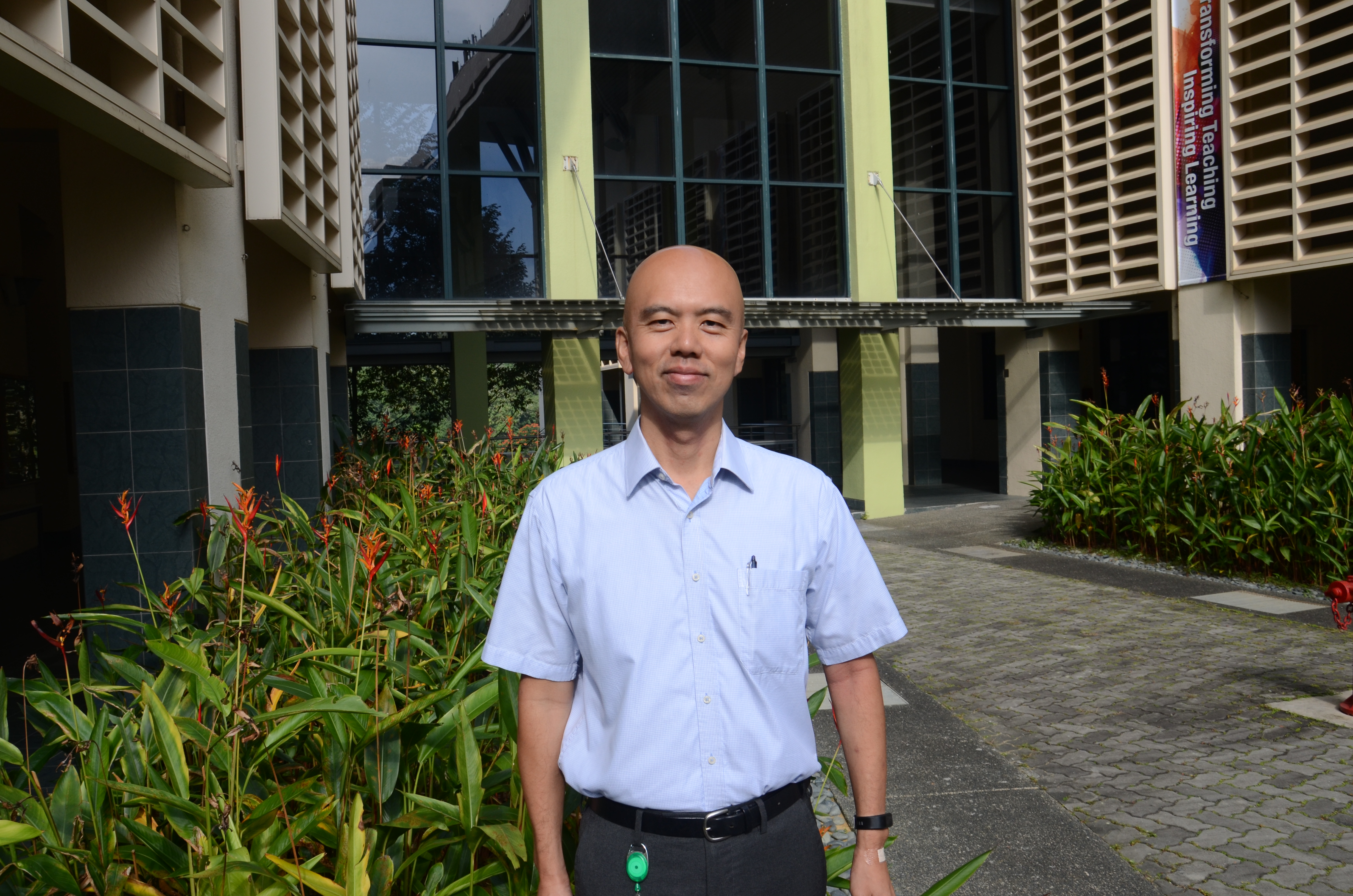Young Children’s Voices in Mathematical Problem Solving
Contributed by Dr Ho Siew Yin and Sng Wei Qin Abbie, from NTUC First Campus, for SingTeach Virtual […]
Read More
The goal of NIE’s CORE Research Programme is not simply to document and identify effective pedagogies, but ultimately to improve teaching and learning in Singapore. We speak to teacher-trained Research Associate Edmund Teo to find out more about the significance of CORE in Singapore’s education landscape.

Edmund emphasises the importance of understanding past and present practices to improve teaching and learning in local classrooms.
When contemplating ways to deepen teaching and learning, educators tend to explore strategies that have proven to be effective in overseas education systems and attempt to incorporate them within the local classroom.
Given Singapore’s unique social, cultural and historical context, however, approaches that are effective in other education systems may not yield similar results when applied locally.
In fact, Edmund Teo, a Research Associate with the CORE team, believes that efforts to improve teaching and learning in Singapore schools must begin with an understanding of past and present
practices in local classrooms.
The CORE project, a longitudinal study of classroom practices in Singapore, started in 2004 and is currently in its third phase.
“We begin each phase by documenting lessons across multiple primary and secondary schools in Singapore,” shares Edmund. These lessons span a range of subjects including English Language,
Science, Mathematics, History, Literature, Music, Character & Citizenship Education and Social Studies.
However, the research does not focus on subject content per se. “CORE aims to improve teaching and learning so when analysing the lessons, we pay close attention to how teaching occurs and
the impact of teachers’ practices on students’ learning,” Edmund explains. “We then try to identify practices that facilitate student learning, which may be common across different subjects.”
To supplement lesson observations, the CORE team conducts surveys, interviews and focus group discussions with teachers and students. In doing so, the research team establishes an understanding of teachers’ instructional beliefs and priorities as well as how students can be better engaged as learners.
“CORE aims to improve teaching and learning so when analysing the lessons, we pay close attention to how teaching occurs and the impact of teachers’ practices on students’ learning.”
– Edmund Teo, on instructional core
“After the findings are ready, the research team organizes follow-up sessions with teachers, where we share insights gleaned from the data collected,” Edmund says. “We also engage them in
conversations about how these insights relate to their practices and students’ learning.”
Apart from discussing the findings and insights, teachers also share what worked well for them and areas where they would benefit from professional development opportunities.
“Several teachers expressed that participating in CORE has made them more mindful about how they teach and how their students learn,” Edmund adds. This awareness prompts teachers to reflect on how they can refine their teaching to better engage students and improve learning outcomes.
While the CORE team is keen to work with teachers to improve their craft, Edmund is cognizant that the team’s expertise is not in informing teachers how to teach better.
“Honestly, that expertise lies with teachers themselves and the MOE academies. What the CORE team brings to the table, rather, are insights about classroom practices from an academic
perspective,” Edmund clarifies.
So what can be done to use the insights from CORE to improve classroom practice?
Edmund ventures that teachers, researchers and pedagogical specialists should form a professional learning community that pulls together their different areas of expertise to develop teaching and learning resources that improve student learning.
“The CORE team’s expertise is not in informing teachers how to teach better – instead, it gives insights into classroom practices from an academic perspective.”
– Edmund Teo, explaining the research done by his CORE team
Before taking up the Research Associate post in 2016, Edmund, who has been a teacher for over 17 years, held the view that he was a mere consumer of research.
His stint with CORE, however, has not only enriched his understanding of how research informs practice, but also prompted him to rethink the role of teachers in education research.
“I have come to realize that if I am to consider myself a professional educator, it is not enough for me to passively consume research and adopt practices that others suggest I adopt,” says Edmund. “In fact, as a professional educator, I need to engage in research to reflect on and refine my own practices.”
Although it has been 2 years since Edmund became an education researcher, he remains a teacher at heart and hopes to eventually return to teaching, where he would use the insights gained from CORE to deepen his practice.
“For one, I would be more deliberate in forming a teaching and learning community among teachers in the school, where we engage in collaborative research to collectively improve our craft,” Edmund shares.
Beyond that, Edmund is also keen to include parents within the education community. “After all, it does take a village to educate a child and in Singapore, we are fortunate that parents want to be involved in the education process. They simply need to know how they can contribute,” Edmund adds.
If schools and parents can work together to support the education of every child, students would eventually reap the benefits of efforts to improve teaching and learning.